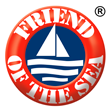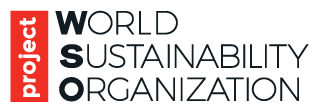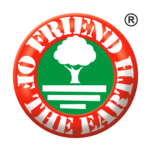Friend of the Sea announces a break-through certification of one of the main European supplier of Pandalus borealis (Northern Shrimp). The products marketed by Norway Prawns SA and produced by Nergaard Reker AS, Stella Polaris AS and Lyngen Reker AS, will carry the international sustainability ecolabel on the shelves in UK, Sweden and other main markets in Europe, reassuring consumers on their sustainable origin.
The fishery, audited by an international independent certification body, is composed of 60 inshore and 40 offshore trawler vessels targeting the Northern Shrimp in the Barents Sea 62 degree North in the Svalbard area and Norwegian economic zone. In this area the use of BRD Sorting grids (Normore grate) is compulsory, making the fishery compliant with Friend of the Sea strict bycatch and discard standards.
According to ICES latest advices, the Northern Shrimp (Pandalus borealis) in the Barents Sea, ICES Div. I and II is harvested sustainably and within precautionary limits. It is underexploited and has full reproductive capacity.
Statistics and documents from the national authorities and FAO show discard level is considerably lower than 8% (maximum allowed by Friend of the Sea). As a matter of fact discarding is prohibited and the entire catch must be brought to shore and accounted for on official landing receipt. During the onsite audit, tests from 3 trawler landings have shown bycatch of an average 5%. A regulation is enforced closing fishing areas if bycatch of small juvenile fish exceeds certain limits.
The potential impact of the fishery on the seabed has been limited to negligible levels by means of several important initiatives, including the creation of the widest cold coral Marine Protection Area in the world and the prohibition to use bobbins and rockhoppers within 12 nautic miles from coastline. The shrimp fishery is mainly carried trough on soft seabed and typically at 25 inches above seabed. According to FAO FTP 472 Impacts of trawling and scallop dredging on benthic habitats and communities, “no clear and consistent effect attributable to trawling were detected” by the several studies over shrimp trawling on clayey-silt bottoms. Furthermore, newest trawl technology is in use which both reduces seabed impact and fuel consumption.
The Northern shrimp fisheries are well controlled by the Directorate of Fisheries, the Coast Guard and the sales organisation Norges Råfisklag. All the larger shrimp trawlers must be included in the charged satellite tracing. This means that the Directorate of Fisheries checks the trawlers’ position at sea every 2 hours. Shrimp and mesh size measurements are run periodically by the control body.
“The Northern Norwegian fishery for Pandalus represents an example to be followed by the other trawling fisheries around the globe, as it has implemented state of the art measures to protect the environment and marine resources.” concludes Paolo Bray, Director of Friend of the Sea
Mr Øystein Pettersen, MD of Norway Prawns AS, comments “Friend of the Sea applies the strictest criteria for certification and it will provide our customers with a clear message on our environmental policy and performance.”
For more information:
Norway Prawns AS
Tor-Edgar Ripman
Friend of the Sea
Paolo Bray – Director – paolobray@friendofthesea.org
Paolo Bray – Director – paolobray@friendofthesea.org



